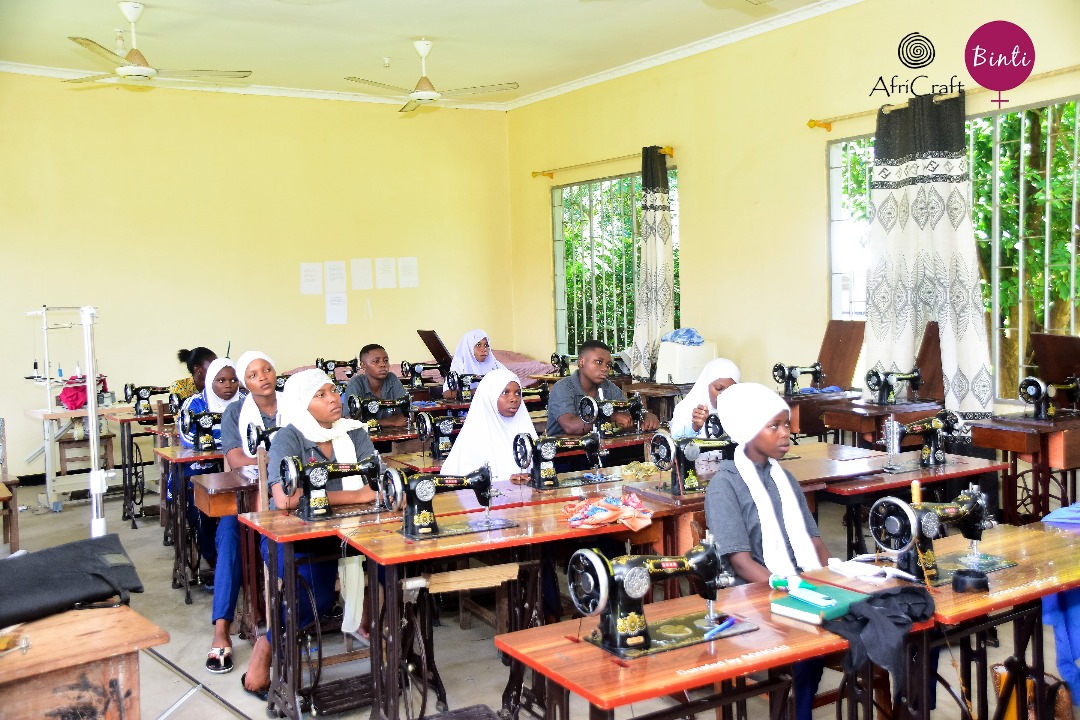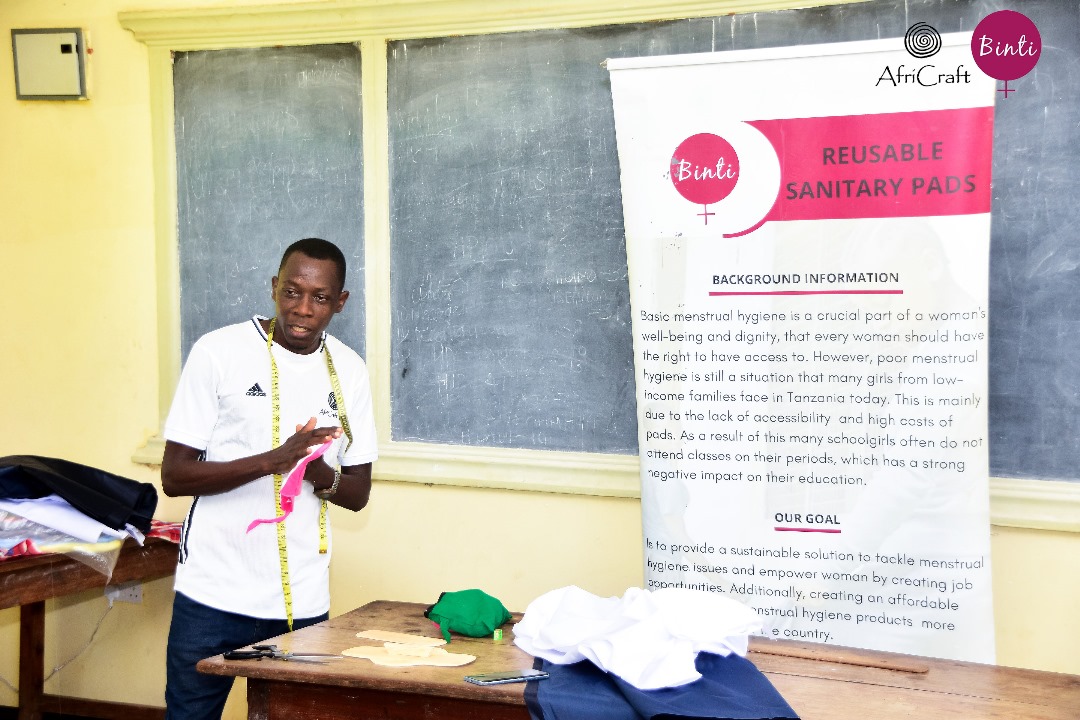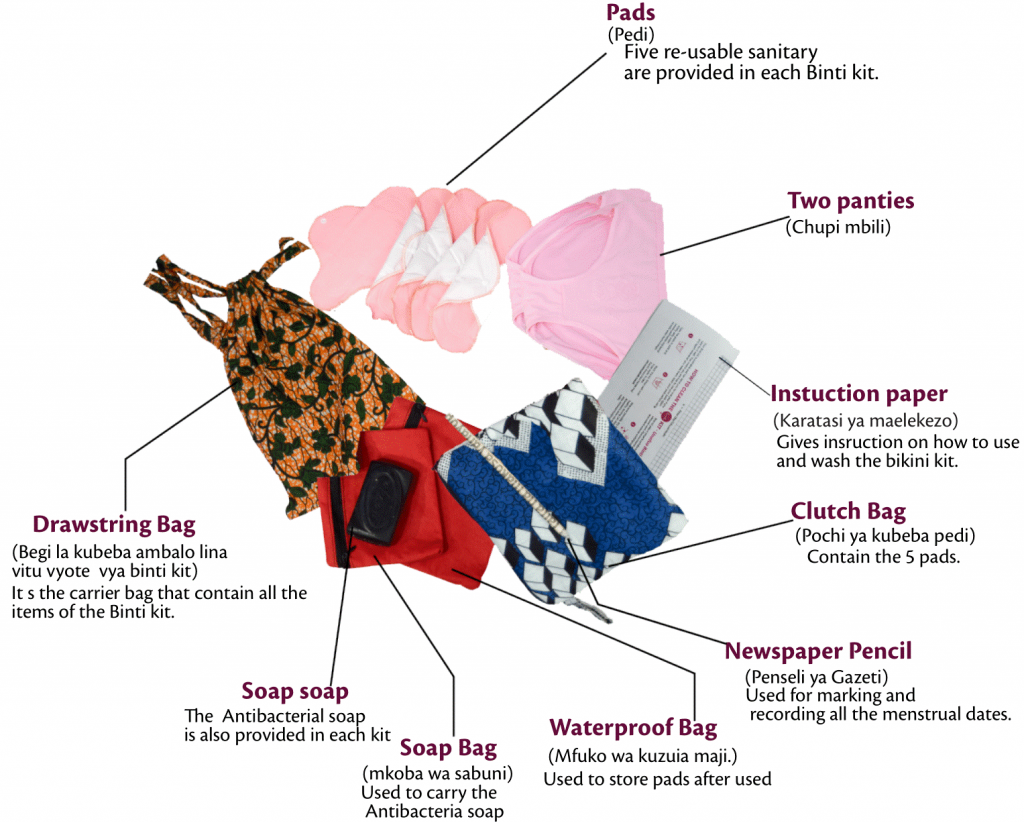Binti Project

Menstrual Hygiene Management for school girls
Basic menstrual hygiene is a crucial part of a woman’s wellbeing and dignity, which every woman should have the right to have access to.However, poor menstrual hygiene is still a situation that many girls from low-income families face in Tanzania today. This is mainly due to the lack of accessibility and high costs of pads. As a result of this many schoolgirls’ often do not attend classes on their periods, which has a strong negative impact on their education.

Why is Menstrual Hygiene Management a Problem?
- Schoolgirls often do not attend classes during their period, in some areas, girls are locked away by their parents during the period and are not allowed to participate in daily societal life
- Girls cannot afford to buy sanitary napkins and often use unhygienic fabrics or banana fibres
- Affordable sanitary napkins are not available specifically in the rural area
- Disposable sanitary pads are no long-lasting solution for girls from poor families
- Disposable sanitary pads are harmful to the environment when not disposed of properly

BINTI sanitary pad kit
BINTI sanitary pad kit provides means of menstrual hygiene to school girls in Tanzania. Girls will no longer miss classes as they feel safe to attend school during their period. Our BINTI sanitary pads are reusable. They are eco-friendly as they do not have to be disposed of after use.
What is inside the kit?
- Big fabric bag (drawstring bag) in which all the items are put
- Small fabric bag (clutch) in which holds five sanitary pads
- Big waterproof bag which will be used to put a used sanitary pad when at school
- Small waterproof bag with a anti-bacteria soap which can be used after changing the pad
- Two panties
- An instruction paper on how to use and clean the kit as well as a calendar to track the menstrual cycle
Our Impact
According to Tanzania Water Sanitation Network (TAWASANET) report of 2015, the majority of the school girls miss between 1-3 days of class every month due to the lack of proper facilities for menstrual hygiene. About 63% of school latrines don’t have a place to dispose of sanitary waste, while 38% of school don’t have wash facilities like water. This results in school drop outs, absenteeism and lower academic performance of girls. Source: Tanzania Water Sanitation Network (TAWASANET) report of 2015
Mama Lishe Project
Mama Lishe Project was a collaboration between AfriCraft NGO, Emina Company, EBf company, and GIZ. The aim was to raise awareness on menstrual hygiene management and general cleanliness among working women of the low income sector.
Women who sell food for Students and teacher are famously known as “Mama Lishe” in Tanzania. They make one of the largest sources of employment for women in the informal sector. Among Mama Lishe workers, the project focus was also on fish sellers, bus conductors, and drivers in the Dar es Salaam region.
6100 reusable sanitary pads, 300 hand wash units and 1000 aprons were donated by AfriCraft NGO, while other cleaning detergents were donated by Emina Company. All items were distributed in different areas in Dar Es Salaam region including Feri fish market, Kariakoo market, Mbagala market, Vingunguti slaughter, Ubungo Mawasiliano, Mabibo, Mbezi bus stand, Makumbusho bus stand, Gongo la mboto bus stand and market, Mnazi mmoja bus stand, Tandika bus stand and market, Ilala boma market and bus st
Support Binti project
AfriCraft Social Projects activities can only be carried out in the future without your support and donations.
As a nonprofit organization (NGO), we have committed ourselves to use all funds and donations only for the realization of our statutory goals. We do not strive to maximize profits, but rather to maximize community engagement and youth empowerment, environmental protection and nature conservation, especially for sustainable development.
For further information please write to us via email at social.projects@africraft.de.

